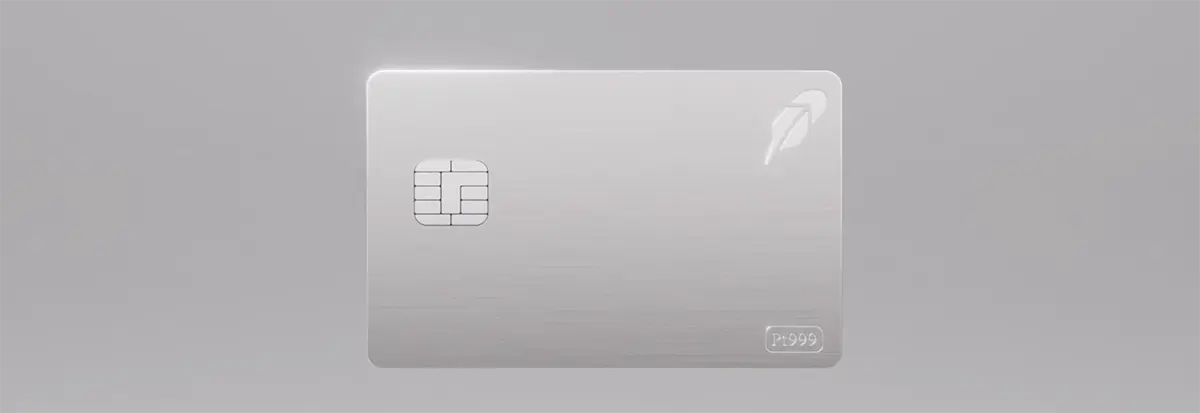
Kudos has partnered with CardRatings and Red Ventures for our coverage of credit card products. Kudos, CardRatings, and Red Ventures may receive a commission from card issuers. Kudos may receive commission from card issuers. Some of the card offers that appear on Kudos are from advertisers and may impact how and where card products appear on the site. Kudos tries to include as many card companies and offers as we are aware of, including offers from issuers that don't pay us, but we may not cover all card companies or all available card offers. You don't have to use our links, but we're grateful when you do!
Does Your Bank Account Affect Your Credit Score?
July 1, 2025


Quick Answers
Standard checking and savings accounts do not directly impact your credit score, as credit bureaus track your borrowing and repayment history, not your cash balances.
An exception is when an overdrawn account is sent to a collections agency, as this negative event can be reported to credit bureaus and lower your score.
Bank accounts linked to credit products, such as an overdraft line of credit, are reported to credit bureaus and will affect your credit score like any other loan.
What is your bank account number?
A bank account number is a unique sequence of digits that financial institutions use to identify a specific checking or savings account. This number is distinct from your bank's routing number and can be found on your paper checks, bank statements, or within your online banking profile. It serves as a crucial identifier for facilitating transactions like direct deposits, wire transfers, and automated bill payments.
Your bank account number does not directly impact your credit score, as credit bureaus primarily track your borrowing and repayment history with credit-based accounts. However, the management of your bank account can have an indirect effect on your credit standing. For instance, if an account is overdrawn and the negative balance is sent to a collections agency, that collection account may be reported to the credit bureaus and subsequently lower your score.
How Your Bank Account Can Affect Your Credit Score
While your daily banking activities don't directly influence your credit score, certain missteps can indirectly cause damage. Here’s how a seemingly separate account can eventually impact your credit standing.
- Account Overdraft: The process often begins when you overdraw your checking account and fail to bring it back to a positive balance, incurring fees from your bank.
- Charge-Off: If the negative balance remains unpaid for an extended period, typically several months, the bank may "charge off" the debt, closing your account and classifying the amount as a loss.
- Sent to Collections: After the charge-off, the bank often sells the debt to a third-party collection agency. This agency will then attempt to recover the money from you.
- Reporting to Credit Bureaus: The collection agency reports the unpaid debt to the major credit bureaus—Experian, Equifax, and TransUnion. This creates a negative entry on your credit reports.
- Credit Score Damage: A collection account is a significant negative event that can lower your credit score substantially and will remain on your credit report for up to seven years.
How Much Will Your Bank Account Affect Your Credit Score?
While your bank account doesn't have a direct line to your credit score, certain banking activities can indirectly influence it. Here are a few key factors to consider.
- Bank account balance: Your checking or savings account balance is not reported to credit bureaus. However, a low balance could lead to missed payments on your credit obligations, which will negatively impact your credit score.
- Account overdrafts: Overdrafts themselves don't affect your credit score as they aren't reported. If the negative balance is sent to a collection agency, that collection account will appear on your credit report and hurt your score.
- Opening new accounts: Applying for a new checking or savings account typically does not result in a hard inquiry on your credit. Therefore, opening a new bank account will not have an impact on your credit score.
How You Can Avoid Your Bank Account Affecting Your Credit Score
Monitor for Overdrafts
An unpaid overdraft can be sent to a collection agency, which will then report it to credit bureaus. Regularly check your account balance and consider setting up low-balance alerts with your bank to prevent accidental overdrafts and protect your credit from negative marks.
Settle Debts Before Closing Accounts
Closing a bank account while it has a negative balance can also result in the debt being sent to collections. Always ensure you have a zero or positive balance and have settled all fees before you formally close any bank account to avoid this issue.
Ways to Improve Your Credit Score
Improving your credit score is an achievable goal, and with consistent positive behavior, you can see meaningful changes within a few months. According to an expert guide, there are several proven methods you can use to boost your score.
- Monitor your credit reports regularly. Obtain free reports from the three major bureaus to check for inaccuracies, dispute errors, and track your progress.
- Establish automatic bill payments. Since payment history is the most significant factor in your score, setting up automatic payments ensures you never miss a due date.
- Reduce your credit utilization ratio. Aim to keep your balance below 30% of your total credit limit by paying down balances or requesting a credit limit increase.
- Become an authorized user. Being added to an account with a strong payment history and low utilization can help build your own credit, as long as the account reports to all bureaus.
- Diversify your credit mix. Lenders like to see that you can manage different types of credit, so having a mix of revolving credit and installment loans can be beneficial.
- Limit hard inquiries. Avoid applying for too many new credit accounts in a short period, as this can temporarily lower your score.
The Bottom Line
While your day-to-day banking activity doesn't directly influence your credit score, negative actions like unpaid overdrafts sent to collections can have an impact on your overall credit health.
Frequently Asked Questions
Does opening a new bank account affect my credit score?
Generally, no. Opening a standard checking or savings account typically only involves a soft inquiry, which does not impact your credit scores.
Do overdrafts affect my credit score?
Overdrafts are not directly reported to credit bureaus. However, if an unpaid negative balance is sent to a collections agency, that can damage your credit.
Does a high bank balance improve my credit score?
No, your bank account balance is not a factor in credit scoring models. Credit scores are based on your history of managing and repaying debt.
Unlock your extra benefits when you become a Kudos member

Turn your online shopping into even more rewards

Join over 400,000 members simplifying their finances

Editorial Disclosure: Opinions expressed here are those of Kudos alone, not those of any bank, credit card issuer, hotel, airline, or other entity. This content has not been reviewed, approved or otherwise endorsed by any of the entities included within the post.



































.webp)







